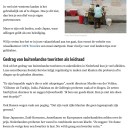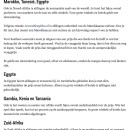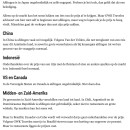Business Insider Netherlands about bargaining at an escortservice and international
On July 8th, Business Insider Netherlands published an article about the international customs regarding bargaining, and interviewed Marike, owner of high class escortservice Society Service. It is discussed per country or regio wether or not bargaining or asking for a discount is custom, or a major insult. The article was published in Dutch but below you can find a summary in English.
Bargaining during your holiday: in these countries it's a must and this is where it's an insult
Those who go on holiday are advised to familiarize themselves with habits and customs in the country of destination. In many non-western countries it is customary to barter. If you do not do this, you are a thief of your own wallet. But there are also countries, such as Japan, where bargaining is an insult. If you want to know what's custom in your holiday destination, the website of exchange office GWK Travelex is a nice starting point. There you will find tips on money matters for many countries.
You can also derive a lot from the behavior of foreign tourists and businessmen in the Netherlands. Luxury escort agency Society Service regularly deals with customers who try to bargain on the services offered. "There are certain regions that really stand out", says director Marike van der Velden. "Clients from Turkey, India, Pakistan and the Gulf region often try to bargain. They use their charms and say, for example: 'I am a good customer. Can't you do something with the price?' " Russians often make an attempt. "These are often rich clients who are not accustomed to contradictions." But Japanese, South Koreans, Americans and Europeans rarely try to negotiate the price. The Dutch try in combination with a complaint. "They say: 'The lady arrived late last time. Now I want an extra 15 minutes.' "
Western-Europe: In France, Spain, Germany, Belgium, Great Britain, Switzerland and the Scandinavian countries, bargaining is not common. GWK Travelex advises you not to bother at places where you would not do so in the Netherlands.
Central and Eastern Europe: In the Czech Republic, bargaining is not a tradition either. In tourist spots or on the market you can try, but do not have too high expectations: according to GWK Travelex you probably will not get much more than 10 to 20 percent off. The situation is similar in Bulgaria, Romania and Russia. Prices in stores are generally fixed. Only in tourist markets do you sometimes have a chance. The best trick is not to bargain, but to walk away if you find the price too high. Maybe the trader offers a lower price.
Turkey: Negotiating is a national sport in Turkey. You sell yourself short if you do not participate in. Usually you can talk about 40 percent of the price. But bargaining is not common in restaurants and larger stores.
Morocco, Tunisia, Egypt: Bargaining is also the most normal thing in the world in North Africa. You can try it almost everywhere: from markets to the taxi and even shops. There is an exception for large stores and hotels. According to travel site Aroundtheglobe.nl, bargaining is part of Moroccan culture. If you do not do this, a Moroccan will not take you seriously and he will have little respect for you. For expensive souvenirs you have to assume a price that is one-third to half of the amount that the seller has mentioned. Do you find the asking price bizarly high, then it is smart to walk away. Often the price is reduced to a fraction of the original asking price. There is an exception for gold, silver and gems, because the margins on them are much smaller.
Egypt: It is customary to bargain in Egypt. In tourist areas you can sometimes halve the price with smart negotiation. Bargaining in large stores or hotels is not customary.
Gambia, Kenya and Tanzania: Negotiations on the price are also custom almost everywhere in the West and East of Africa. Those who play smartly can save up to 50 percent on the purchase price. In large stores or hotels it is usually impossible to bargain.
South Africa: In South Africa, bargaining is less common, although you can sometimes negotiate 40 percent of the price in markets. Prices are usually fixed in large stores or hotels.
Cape Verde: In Cape Verde, bargaining is not appreciated in most stores or restaurants. At tourist shops or market stalls, you can try.
Thailand: If you enjoy bargaining, you'll love Thailand. Discounts of 50 percent are not unusual.
Japan: Bargaining is unusual and even inappropriate in Japan. If you try to do it, it is considered an insult. Only on the market, sometimes you can succeed to get something off the price. But GWK Travelex advises not to start haggling here, but to walk away if you find the price too high. Maybe the seller will drop with his price.
China: In China, bargaining is often possible. According to Van der Velden, who has just returned from a trip to this Asian country, bargaining for up to 90 percent of the asking price is normal in both large department stores and stalls.
Indonesia: Negotiating the price of a ride with the bicycle taxi or food and other items on the market is quite normal in Indonesia.
US and Canada: In the United States and Canada, bargaining is unusual. So don't.
Central and South America: The customs in South America vary from country to country. In Chile, Argentina and the Dominican Republic, bargaining is not common, especially in restaurants and large stores. Sometimes it is possible in markets. But in Brazil, Ecuador and Cuba it is expected that you will negotiate the price. According to GWK Travelex you have to strive for a discount of about 20 percent in Brazil. But in restaurants the prices are fixed. In Cuba discounts up to 50 percent are not strange. But in holiday resorts and restaurants it is not appreciated if you try to lower the price.
Australia and New Zealand: As in Europe, bargaining in Australia and New Zealand is not done.




